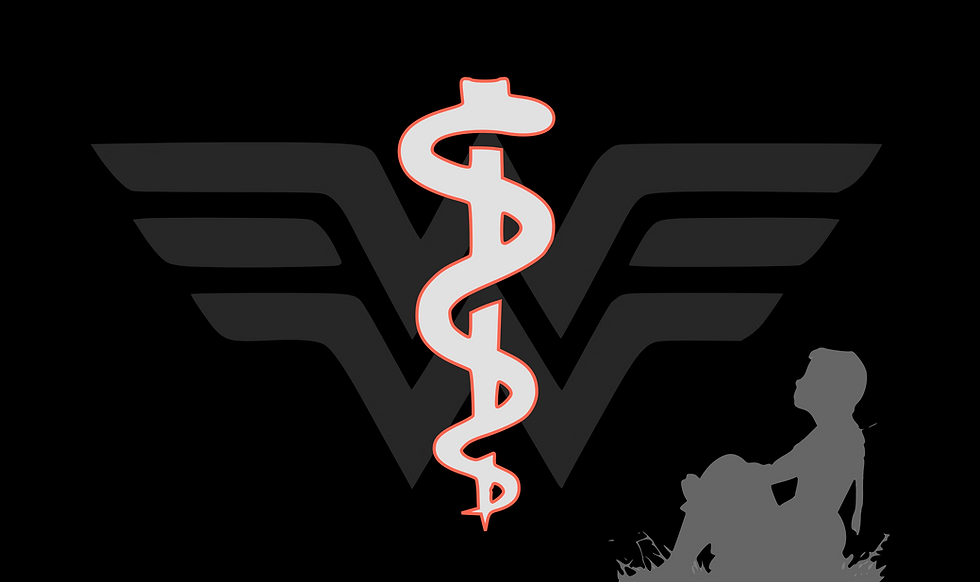WONDER where the WOMEN are w/ Natalie Zink
- Natalie Zink
- Jul 14, 2019
- 4 min read

You will have to forgive me as this piece will not do intersectionality enough justice. I acknowledge whole-heartedly the complexities that come with being of a different race, sexual orientation, ability, etc, but this has the potential to turn into a dissertation if I delve too deeply. I humbly welcome opinions and perspectives that further open this discussion and do not pretend to be able to speak on behalf of aminority group I do not belong to. For my purpose today, I will be focusing simply on gender.

Representation is an interesting term. Most simply, it is the idea that when you think of who you want to be when you grow up, you don’t just have to imagine a blob-person version of yourself; you can actually open your eyes and see yourself in someone else who has already trail-blazed. It is one that has been unfortunately politicized, but it is an important contributing factor to success. NPR explored a study that found “when students had teachers of the same race as them, they reported feeling more cared for, more interested in their schoolwork and more confident in their teachers abilities to communicate with them. These students also reported putting forth more effort in school and having higher college aspirations.” Boom.

Having a role model that you can relate to bolsters your motivation and your confidence. Another example, called See Jane, shows how women are less likely to play leading roles in mainstream media, and when they are, they are often shown as a caricature of femininity. The effects of this, you can imagine, can lead to young girls not dreaming as much, believing their life
prospects must be different than that of their male counterparts. How is this playing out? Well, in one of the more disturbing reports I’ve read, 75% of boys and girls had already known of and subscribed to the stereotype that “girls don’t do math” by SECOND GRADE. Ok, Natalie, I’m upset, but how do you know representation plays a role in this? Thanks for asking, astute reader! Yet another article cites a key statement: “Six in 10 girls admitted they feel more confident pursuing a STEM career if they knew men and women were already equally employed in these fields.” Ok, now that I have you, let’s start really talking. Oh, and by the way, if you are wondering why I’m citing so much, it’s because there is A LOT of well-established research and discussion about representation; this is not a ground-breaking idea…yet here we are, discussing it, again.
Alright, let’s do an exercise.
When you were growing up, who did you look up to? How’d you find out about them? Did they look like you? Were they from your state? Like the same sports team as you? Ok, fast forward. Who are your heroes now? Again, what do you have in common with them? It is a very human thing to find and cling to similarities, finding your tribe if you will. It doesn’t always
have to be obvious common ground; maybe you love Elvis because you, too, love fried peanut butter and banana sandwiches. He made you feel heard. Here’s an example: this is a photo from my 2nd grade biography project.

I was OBSESSED with Barbara Bush. I found her to be poised and dedicated to her family and mission and whatever word 8-year-old Natalie used to convey “badass”. And ever since it came out that she died in hospice care surrounded by family and drinking a glass of bourbon, it has become even more clear that 2nd grade me really had great insight in choosing a hero. At this age, I knew plenty of athletes or scientists or actors or religious figures, but I chose my girl Barb because at that point, the idea of her was attainable to me.
As I’ve grown up, in a similar way, a special kind of mentorship has always been reserved for women in my desired field. EMS is classically a boys’ club, and I deeply respect the ladies who have come before me and paved the way for a more inclusive environment. I hope to play a role in the continued efforts. We face unique challenges that sometimes a man simply can’t advise us through, which is no one’s fault-just a fact. Furthermore, it is imperative for an organization to prioritize diversity in leadership, whether that means gender, race, religion, region, degree of extraversion, artistic ability, etc. Further advancements come from those who challenge the status quo and give a different perspective. Dr.Heather Hammerstedt, in a piece for FeminEM, discusses the benefits to having females in leadership teams citing that “companies with women in senior management consistently outperformed industry medians” and “having a woman on a company board in one study decreased a company’s bankruptcy rate by 20%.” Not to mention, it helps those minority groups within the organization to feel represented and important. According to Dr. Kathy Staats, another one of my FeminEM heroes, as of 2017, only 34% of EMTs and 21% of paramedics were women. Ladies, we have some werk to do and ground to make up for.
Gentlemen, we would much prefer to be invited to the table instead of having to crash the party. I intend to play a role in prehospital care that further improves the climate for future generations and hope that you find the importance of representation to ring true for you. Think of how powerful it is to be able to tell your young daughter that she can run for president and actually mean it. Or that she can complete Ranger school. Or Hell, just being able to take her to the movies and see Gal Gadot saving the world.
Who knows, maybe just by being a lady medic, I can be her Barbara Bush.
-Natalie Zink

